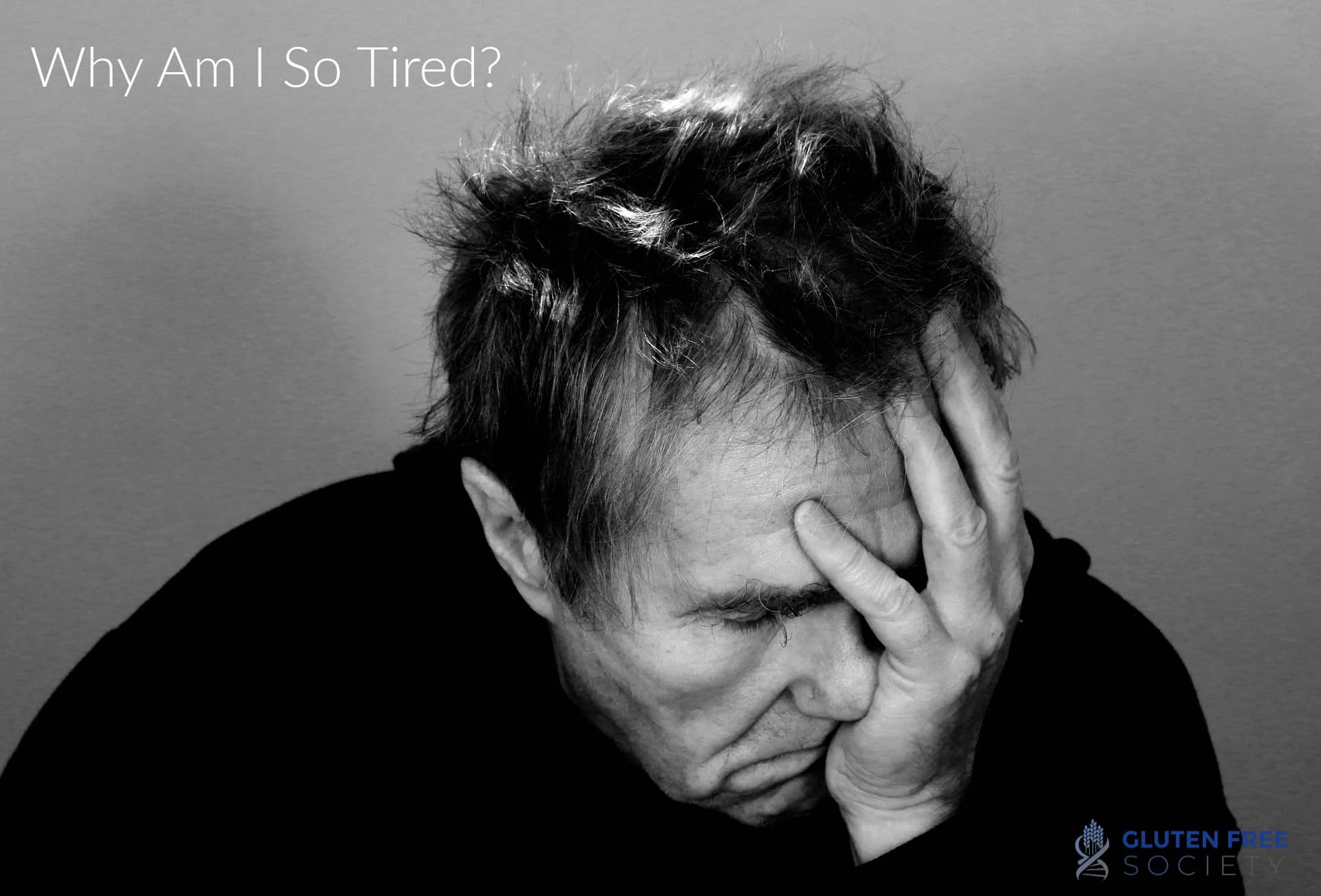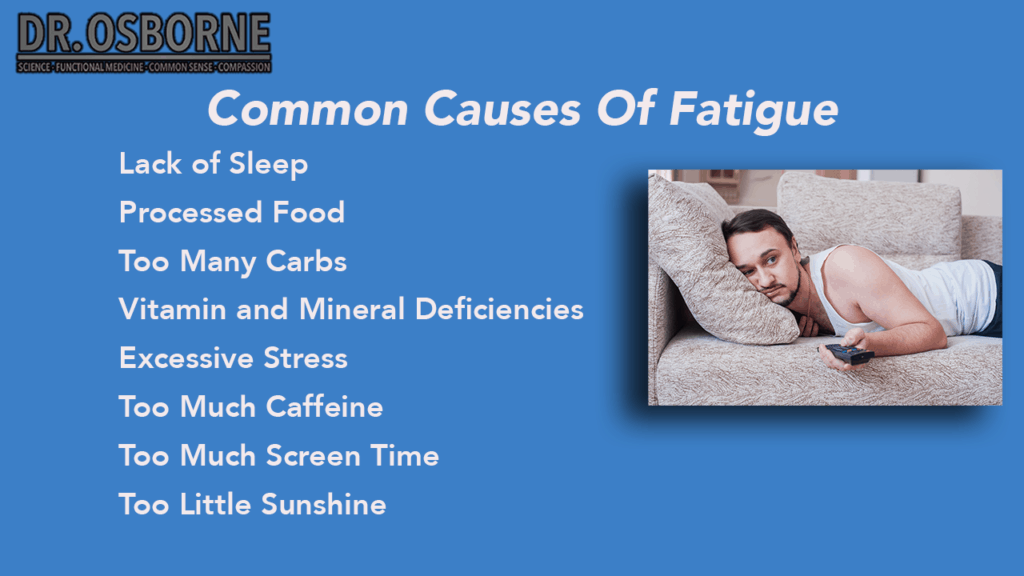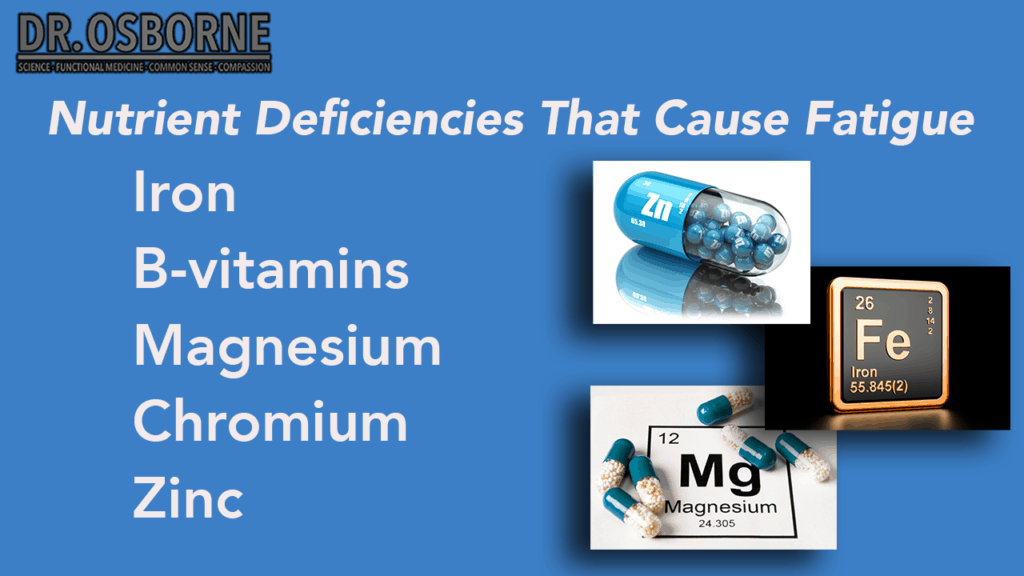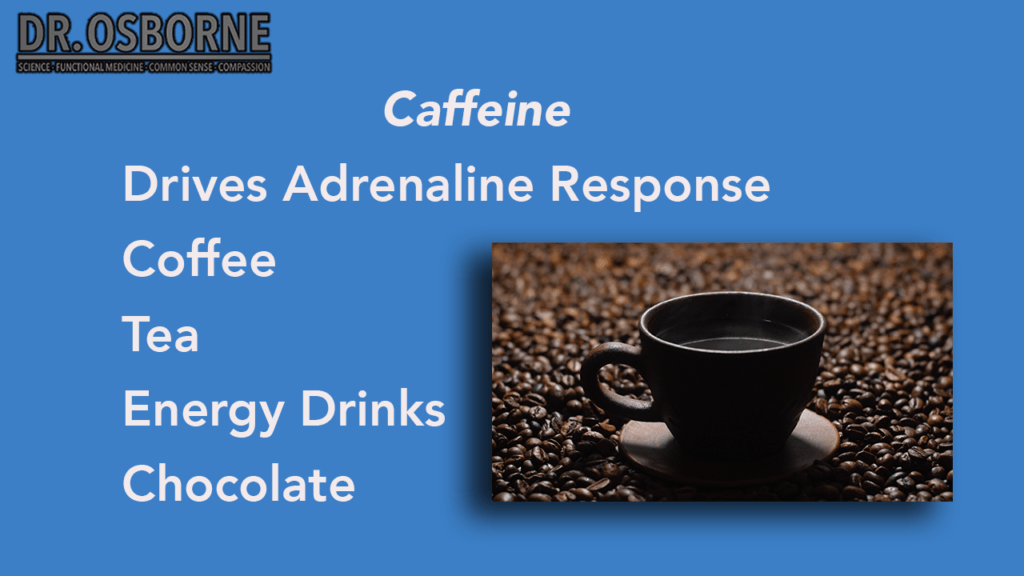new to the gluten free journey?
new to the gluten free journey?

 Living in a fast-paced world keeps us shuffling from one place to the next. We spend all day at work to finally get home, spend a few hours with the family, jump into bed, and do it all over again. With demands placed on every hour of the day, it’s no wonder most of us experience fatigue.
But is that all that’s causing our fatigue? While the lack of sleep and stress can impact how tired you are, there are actually several other factors that come into play as well.
Living in a fast-paced world keeps us shuffling from one place to the next. We spend all day at work to finally get home, spend a few hours with the family, jump into bed, and do it all over again. With demands placed on every hour of the day, it’s no wonder most of us experience fatigue.
But is that all that’s causing our fatigue? While the lack of sleep and stress can impact how tired you are, there are actually several other factors that come into play as well.

Contents
Toggle As mentioned with processed food, if the body is not getting enough nutrients in the diet, the body will start to decline dramatically. Foods consumed that are not nutrient-dense can be detrimental to the GI tract causing mal-absorption and mal-digestion. Medications can also cause this, including antacids like Nexium and Zantac, as well as antibiotics.
Deficiencies leading to fatigue:
As mentioned with processed food, if the body is not getting enough nutrients in the diet, the body will start to decline dramatically. Foods consumed that are not nutrient-dense can be detrimental to the GI tract causing mal-absorption and mal-digestion. Medications can also cause this, including antacids like Nexium and Zantac, as well as antibiotics.
Deficiencies leading to fatigue:
 While everyone deals with stress from time to time, those who are chronically stressed out will feel a greater level of tiredness. This type of stress is typically seen in individuals who want to control every aspect of their life, as well as the lives of those around them. Instead of trying to control unforeseen circumstances, these individuals must focus on controlling their diet, exercise, getting clean air and water, as well as sunshine.
While everyone deals with stress from time to time, those who are chronically stressed out will feel a greater level of tiredness. This type of stress is typically seen in individuals who want to control every aspect of their life, as well as the lives of those around them. Instead of trying to control unforeseen circumstances, these individuals must focus on controlling their diet, exercise, getting clean air and water, as well as sunshine.
 While most consume caffeine to wake up, it could actually be what is causing fatigue in the first place. Though one cup a day or 100-150 milligrams is fine, consuming more than this can have detrimental effects. Caffeine stimulates the adrenal glands and pushes them to create adrenaline, sending it to the brain – creating a high and then causing a crash.
Caffeine is extremely addictive and can create a dependency. It is a diuretic, meaning that it can cause the excretion of water-soluble vitamins, leading to deficiencies and fatigue. Lastly, it can erode the mucosal lining of the stomach over time, creating slow blood loss and causing anemia.
While most consume caffeine to wake up, it could actually be what is causing fatigue in the first place. Though one cup a day or 100-150 milligrams is fine, consuming more than this can have detrimental effects. Caffeine stimulates the adrenal glands and pushes them to create adrenaline, sending it to the brain – creating a high and then causing a crash.
Caffeine is extremely addictive and can create a dependency. It is a diuretic, meaning that it can cause the excretion of water-soluble vitamins, leading to deficiencies and fatigue. Lastly, it can erode the mucosal lining of the stomach over time, creating slow blood loss and causing anemia.
 So what can be done to fight fatigue and therefore improve one’s health? First, start by improving sleep habits. Make sure to be in bed asleep by 10 pm and keep the house cool, around 70-72 degrees. Invest in a good mattress and pillow, changing out the mattress at least every seven to eight years.
Perform deep breathing exercises to relax right before bed – inhaling deeply and slowing exhaling. Additionally, it’s important to have a proper sleeping posture. Either lay flat on the back with an aligned neck, sternum, and back or on the side with a properly supported neck.
So what can be done to fight fatigue and therefore improve one’s health? First, start by improving sleep habits. Make sure to be in bed asleep by 10 pm and keep the house cool, around 70-72 degrees. Invest in a good mattress and pillow, changing out the mattress at least every seven to eight years.
Perform deep breathing exercises to relax right before bed – inhaling deeply and slowing exhaling. Additionally, it’s important to have a proper sleeping posture. Either lay flat on the back with an aligned neck, sternum, and back or on the side with a properly supported neck.
Stay up-to-date with the latest articles, tips, recipes and more.

*These statements have not been evaluated by the Food and Drug Administration. This product is not intended to diagnose, treat, cure or prevent any disease.
If you are pregnant, nursing, taking medication, or have a medical condition, consult your physician before using this product.
The entire contents of this website are based upon the opinions of Peter Osborne, unless otherwise noted. Individual articles are based upon the opinions of the respective author, who retains copyright as marked. The information on this website is not intended to replace a one-on-one relationship with a qualified health care professional and is not intended as medical advice. It is intended as a sharing of knowledge and information from the research and experience of Peter Osborne and his community. Peter Osborne encourages you to make your own health care decisions based upon your research and in partnership with a qualified health care professional.
© 2025 Gluten Free Society. All rights reserved.